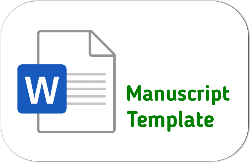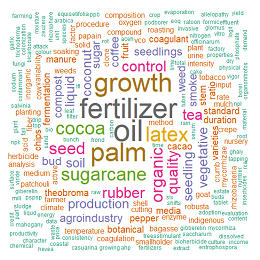Pelanggaran Standar Operasional Prosedur Produksi Teh Iroet
DOI:
https://doi.org/10.25181/jaip.v6i1.776Abstract
Iroet Tea is a dry tea trademark owned by Koperasi Serba Usaha (KSU) Putera Mekar. Iroet tea products have been certified UTZ number two in the world and number one in Indonesia related to good plantation practices, good tea processing, environmental social issues, food safety, and quality improvement. Iroet Tea earned UTZ certificates in 2011 and 2013, but currently does not receive the certification, because there are many violations of the standard production procedures, so please note what violations that occur during the production process. The research design used in this research is qualitative with case study technique. The method used in this research is descriptive qualitative. KSU Putera Mekar has set the standard opertaion procedure since the process of picking shoots until dry tea processing process, so that if farmers and workers follow the standard procedure, then Iroet tea products produced will be good quality and get UTZ certificate. But many violations Iroet tea standard operation  procedures, from picking tea shoots, shoots at the shelter collecting the results, to the processing of dried tea is done at the factory. The results showed that there were many violations during the process of supplying raw materials to the production process, the violations committed in the form of non compliance with standard operation procedures and agreements related to raw materials needed, the process of gathering raw materials, and processing of dry tea.  Keywords: production, quality control, standard operation procedure, teaDownloads
References
Anggraini, Q. D., Haryono, H., & Aksioma, D. F. (2016). Pengendalian kualitas proses produksi teh hitam di PT. Perkebunan Nusantara XII Unit Sirah Kencong. Jurnal Sains dan Seni ITS, 5(2). 327–332.
Anjarsari, I. R. D. (2016). Katekin teh Indonesia: prospek dan manfaatnya. Kultivasi, 15(2), 99-106.
Balqis, P., Ibrahim, N. U., & Ibrahim, S. (2014). Kompetensi Pedagogik Guru dalam Meningkatkan Motivasi Belajar Siswa Pada SMPN 3 Ingin Jaya Kabupaten Aceh Besar. Jurnal Administrasi Pendidikan: Program Pascasarjana Unsyiah, 2(1), 25-38.
Direktorat Jenderal Perkebunan. (2016). Statistik Perkebunan Indonesia 2014-2016. Jakarta: Direktorat Jenderal Perkebunan.
Johan, M. E., Salim, A. A., & Rachmiati, Y. (2009). Pengaruh Cara Pemetikan Dengan Gunting dan Aplikasi Pemupukan Terhadap Peningkatan Produksi Pucuk Tanaman Teh Asal Biji. Jurnal Penelitian Teh Dan Kina, 11, 17–24.
Kusmiyati, M., Sudaryat, Y., Lutfiah, I. A., Rustamsyah, A., & Rohdiana, D. (2015). Aktivitas antioksidan, kadar fenol total, dan flavonoid total teh hijau (Camellia sinensis (L.) O. Kuntze) asal tiga perkebunan Jawa Barat. Jurnal Penelitian Teh Dan Kina, 18(2), 101–106.
Moleong, L. J. (1999). Metodologi penelitian. Bandung: PT. Remaja Rosda Karya.
Novasyurahati. (2014). Strategi untuk perbaikan manajemen perkebunan teh rakyat: studi kasus di Kecamatan Pasirjambu dan Ciwidey, Kabupaten Bandung. Jurnal Matematika Dan Sains, 19(2), 33–49.
Rohdiana, D. (2015). Teh: proses, karakteristik dan komponen fungsionalnya. Food Review Indonesia, 10(8), 34-37.
Sugiyono. (2013). Metode Penelitian Kuantitatif, Kualitatif dan R&D. Bandung: Alfabeta.
Suharsimi, A. (2010). Prosedur Penelitian: Suatu Pendekatan Praktik (Edisi Revisi). Jakarta: Rineka Cipta.
Suprihatini, R. (2016). Daya saing ekspor teh Indonesia di pasar teh dunia. Jurnal Agro Ekonomi, 23(1), 1-29.
Trimo, L., Fatimah, S., & Djuwendah, E. (2017). Kajian Pengembangan Agroindustri Berbasis Teh Rakyat. Jurnal Rekayasa Hijau, 1(2), 136-145.
Trimo, L., & Nurafifah, I. (2017). Study of development of agro-tourism potential on tea small-holder. Jurnal Penelitian Teh dan Kina, 20(1), 36-47.
Wibowo, A., & Ramadian, D. (2010). Model simulasi kinerja produksi teh untuk minimisasi work-in-process. Jurnal Optimasi Sistem Industri, 9(1), 7-12.
Wulansari, R., Rachmiati, Y., Rezamela, E. (2017). Kajian status hara tanah dan tanaman di perkebunan teh Jawa Barat dan Sumatera Utara. Creative Research Journal, 1(01), 16-30.
Downloads
Published
How to Cite
Issue
Section
License
Authors who publish with Jurnal Agro Industri Perkebunan agree to the following terms:
Authors retain copyright and grant the Jurnal Agro Industri Perkebunan right of first publication with the work simultaneously licensed under a Creative Commons Attribution License (CC BY-SA 4.0) that allows others to share (copy and redistribute the material in any medium or format) and adapt (remix, transform, and build upon the material for any purpose, even commercially) with an acknowledgment of the work's authorship and initial publication in Jurnal Agro Industri Perkebunan.
Authors are able to enter into separate, additional contractual arrangements for the non-exclusive distribution of the journal's published version of the work (e.g., post it to an institutional repository or publish it in a book), with an acknowledgment of its initial publication in Jurnal Agro Industri Perkebunan. Authors are permitted and encouraged to post their work online (e.g., in institutional repositories or on their website) prior to and during the submission process, as it can lead to productive exchanges, as well as earlier and greater citation of published work.


























